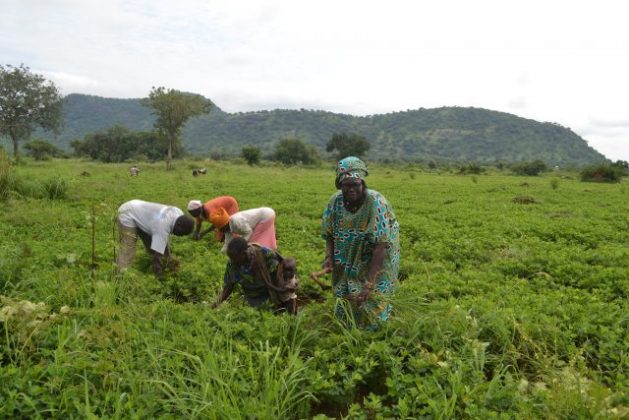Earth Day is a Time to Reflect on What It Means to Invest in Our Planet

URBANA, Illinois, Apr 22 (IPS) - Around the world, Earth Day 2022 is being celebrated. The theme this year is “Invest in Our Planet”. To mark the day, activities such as planting trees, protests, marches, cleaning up litter, and conferences will be held to highlight the importance of investing and taking care of our planet.
This is sorely needed as our planet is in its worst shape ever, according to the 2022 and 2021 Intergovernmental Panel on Climate Change (IPCC) reports, and its citizens are facing daunting challenges including food insecurity and COVID-19.
Other evidence to highlight our unhealth planet included increase in the occurrence of billion dollar weather and climate disasters with dire impacts to humans and other species that live in our planet, land and soil degradation, and accelerating loss of biodiversity and species including insects.
Since there is nothing significant to celebrate, just work to do, it is only fair we reflect on what it means to invest in our planet.
And so, I took time to reflect on what this theme means to me, as a person who grew up on a farm in the Kenyan Coast, as a food security advocate and as a female African scientist.
My research aims to find sustainable ways to feed our growing population and uncover novel ways to combat the impacts climate change extremes such flooding, droughts and crop devouring insects have on agricultural crop plants.
First, investing in our planet, means investing in the people living in it and making sure everyone around the world has access to nutritious food. At the moment, over 800 million of people living in our planet are hungry. According to the United Nations World Food Programme, 44 million people in 38 countries are facing famines all because of climate shocks, conflict, and the global pandemic.
Solving hunger for the millions that are impacted, many of whom live in developing countries, means investing in agriculture. Most of the world’s poor, including women, are rural people earning livings from agriculture.
To accelerate progress, it is imperative to invest in ensuring that farmers have the tools and knowledge base to mitigate the climate change impacts on agriculture. Such tools include access to financing, and agricultural inputs as well as extension services and capacity building and technology transfer schemes to ensure that farmers can implement science-proven climate smart agricultural practices.
Climate smart agricultural practices aim to tackle three objectives: sustainably increase agricultural productivity, adapt, and build resilience to climate change and reduce or remove greenhouse gas emissions.
These initiatives employ and encourage several strategies including timely planting of improved crop varieties, diversifying crop base, using integrated pest and weed management, and delivering timely seasonal and current weather information to farmers and sharing agricultural innovations.
Second, investing in the planet means investing in empowering women and girls, particularly, women from marginalized communities. Women continue to play multiple roles in our planet including serving in the agricultural workforce as food producers of food.
In many African countries including Cameroon, Gabon, Kenya, according to the World Bank, women make up over 40 percent of the agricultural workforce.
Thirdly, investing in our planet means investing in science. Science will continue to bring forth novel solutions to address these challenges and it is imperative that developed and developing countries alike invest and increase the national budgets allocated to science funding, particularly, science that is understanding the changing climate and strategies for increasing climate resilience.
Fourth, investing in our planet means highlighting and nurturing all voices – Black, white, lesbians, gay and queer.
Despite the issue affecting us all, surprisingly, the voices that continue to be heard are consistently white and straight. This must change. We must reiterate the fact that the impacts of our changing climate affect everyone and have no respect for boundaries humanity has created.
We must encourage and highlight activists from all continents and backgrounds. Doing so will reinforce the message that we are in this planet together and collectively, we can act.
Clearly, Our Earth and planet and the people living in it will continue to experience new and harsh realities in part due to the changed climate. We all must strive to reflect and proactively do something. Time is of essence.
Dr. Esther Ngumbi is an Assistant Professor at the University of Illinois at Urbana Champaign, and a Senior Food Security Fellow with the Aspen Institute, New Voices.
© Inter Press Service (2022) — All Rights Reserved. Original source: Inter Press Service

